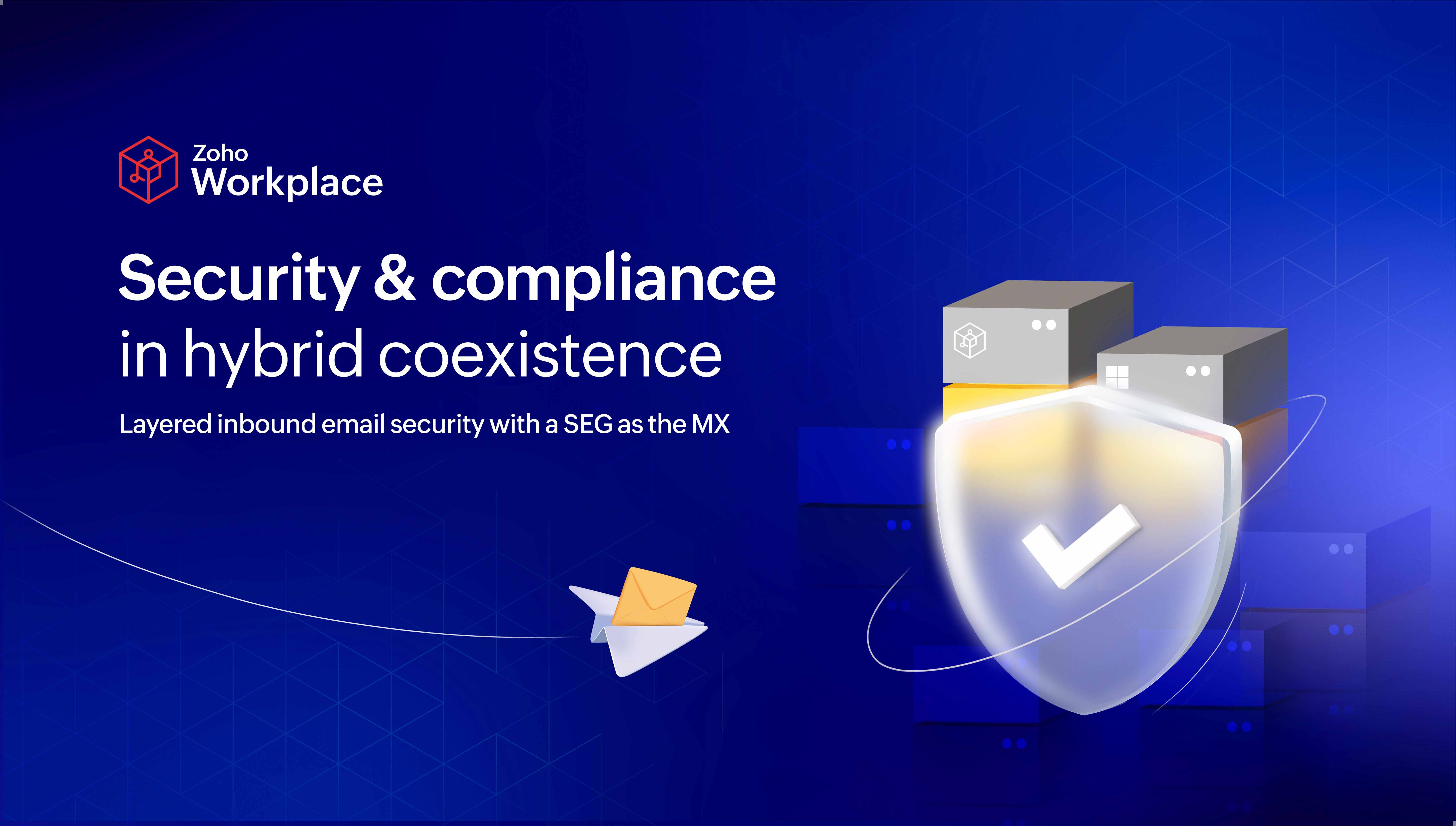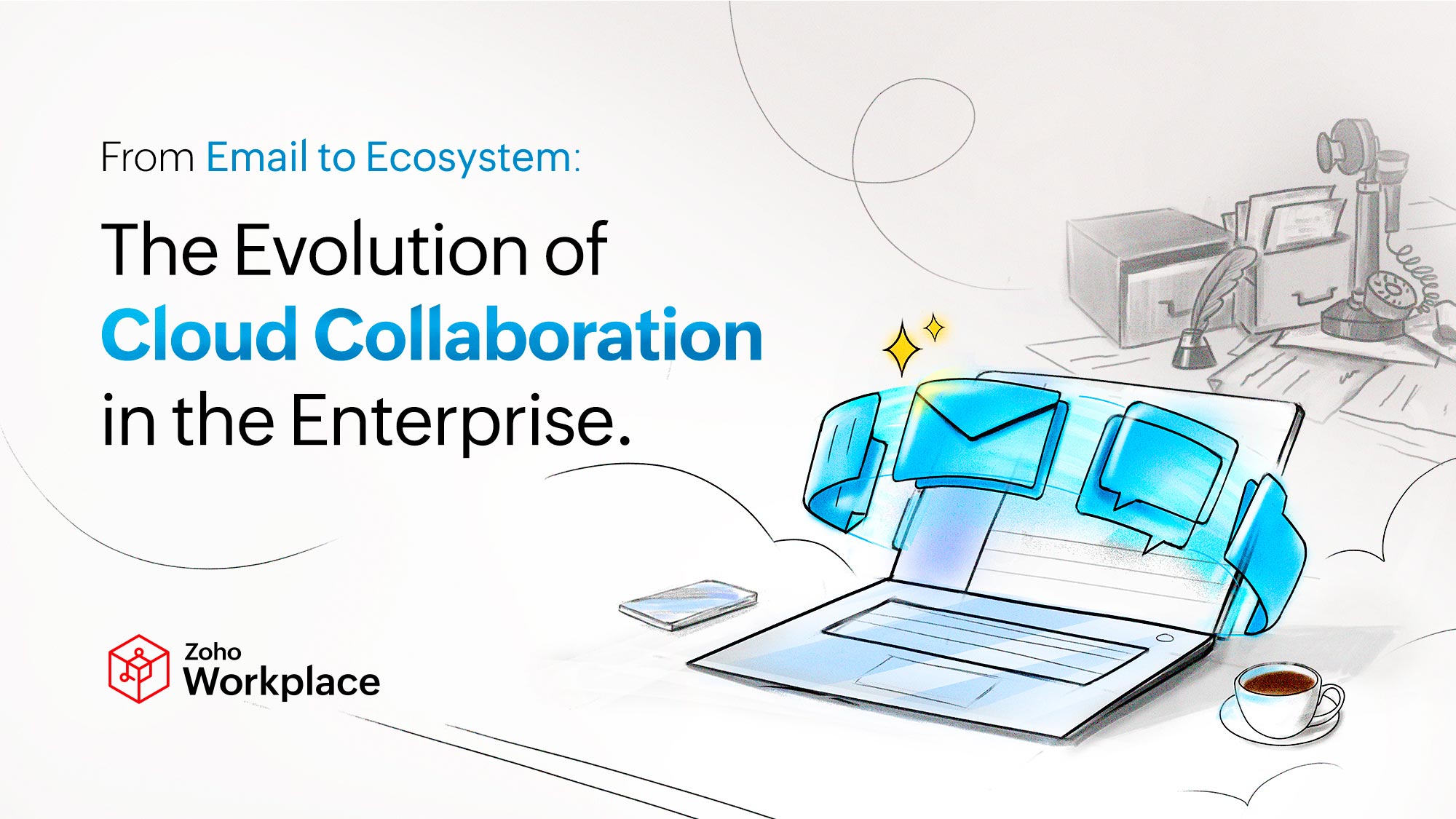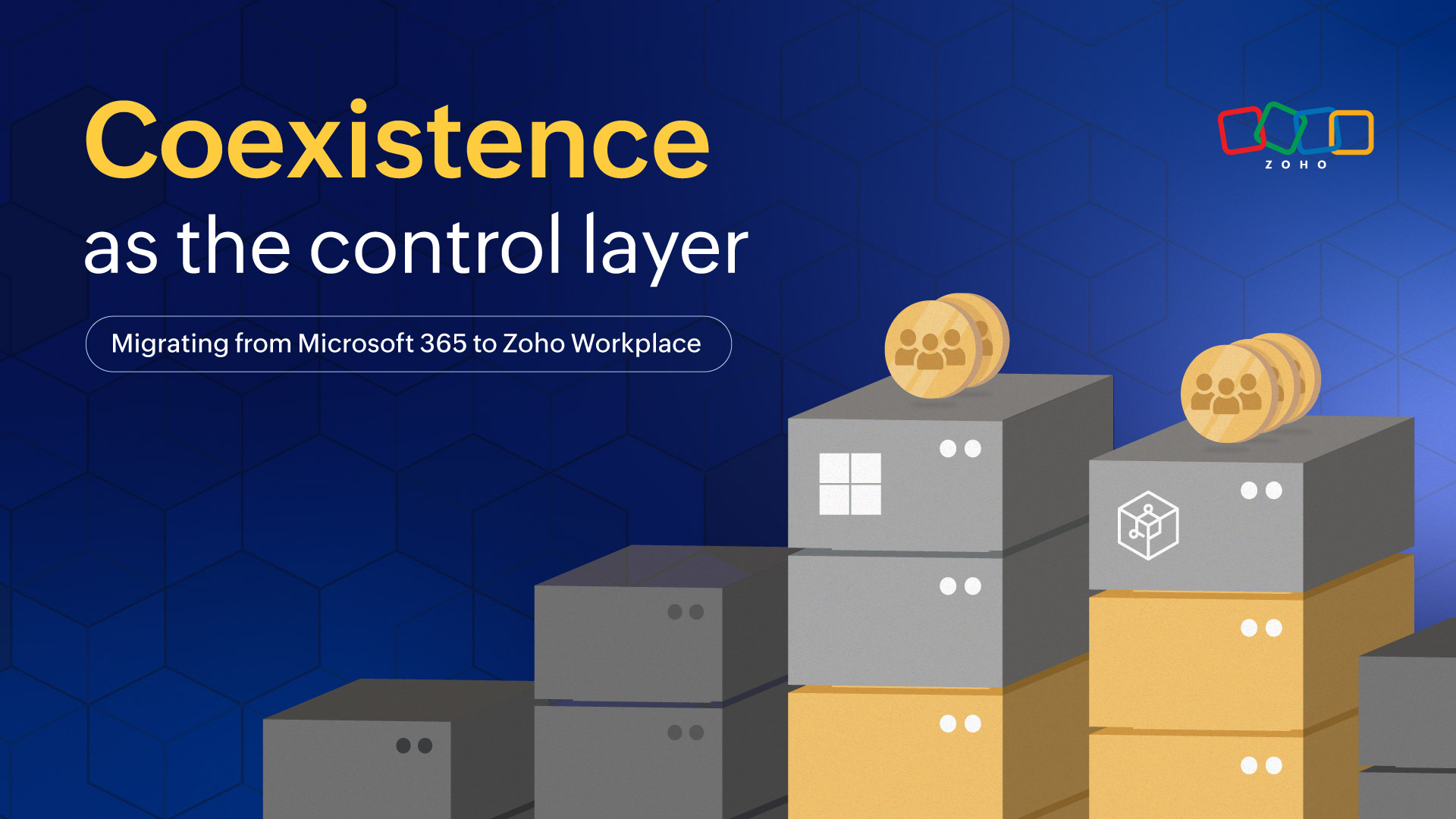- HOME
- All Products
- Migrating from Microsoft 365 to Zoho Workplace: Email delivery models
Migrating from Microsoft 365 to Zoho Workplace: Email delivery models
- Published : November 7, 2025
- Last Updated : November 10, 2025
- 656 Views
- 4 Min Read
This ebook defines the email delivery models used during a phased migration from Microsoft 365 to Zoho Mail. It explains when to use Split delivery and when to use Dual delivery, how each model is operated during coexistence, and how to transition to a Zoho-only state without downtime.
During coexistence, both platforms run in parallel. Inbound mail typically lands on Microsoft 365 early in the project and switches to Zoho near the end. The delivery model governs how inbound messages are routed and whether a duplicate copy is kept during a short validation window. (Outbound sending is configured separately and does not determine the model.)
User states during coexistence
|
|
|
| Source-only: Microsoft 365 intake | Before migration (Zoho not introduced). | All inbound mail is delivered exclusively to Microsoft 365, with a single copy stored there. The MX records continue to point to Microsoft 365, and no routing to Zoho is configured. |
| Split delivery: M365 as intake | During batch migration (batches that don’t need Dual). | With split delivery (MX on Microsoft 365), set the domain to Internal relay and create an outbound connector to Zoho. Mail for non-migrated users delivers locally; if a recipient is not found in Microsoft 365, the message is relayed to Zoho. If you want pilot scoping, add a scoped mail flow rule to route a defined group to Zoho, and remove it as migration completes. |
| Dual overlay (time-boxed): M365 as intake | During batch migration for VIP/pilot users needing validation/fallback. | Unlike split delivery, inbound mail lands in Microsoft 365 first. A duplicate is then sent to Zoho for the pilot or VIP users via a scoped mail flow rule (BCC or redirect) or journaling. Remove the rule after validation. |
| Last phase and cutover: Zoho as intake → Zoho-only | After MX flip to Zoho, through final cutover to steady state. | After MX cutover, Zoho becomes the primary inbound host: Mail for migrated users delivers to Zoho, while mail for not-yet-migrated users is relayed (secondary delivery) from Zoho to Microsoft 365 for single-copy delivery. Once all users are moved, remove the relay and operate fully on Zoho. |
Email delivery coexistence: Decision mind map
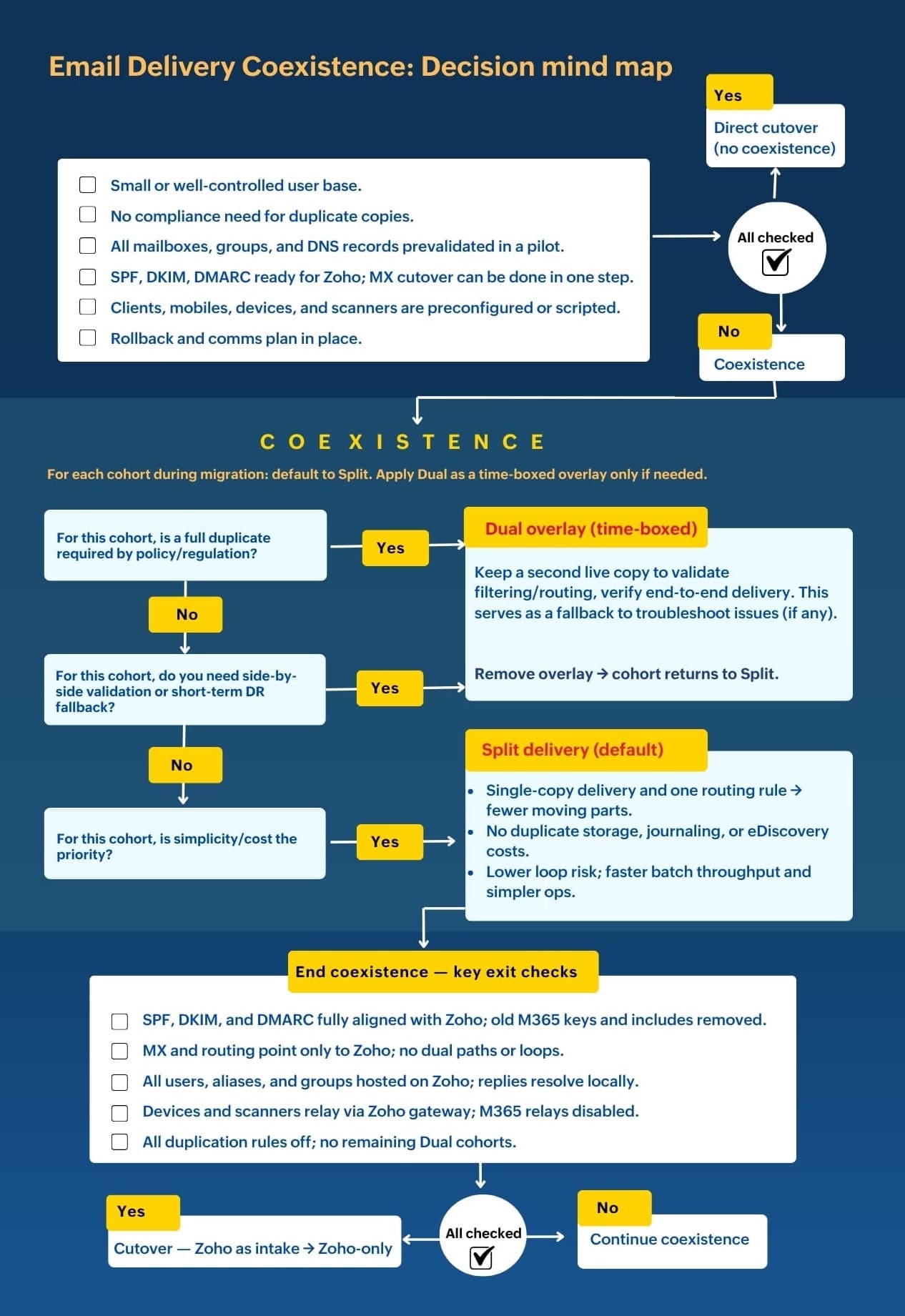
Lifecycle of coexistence
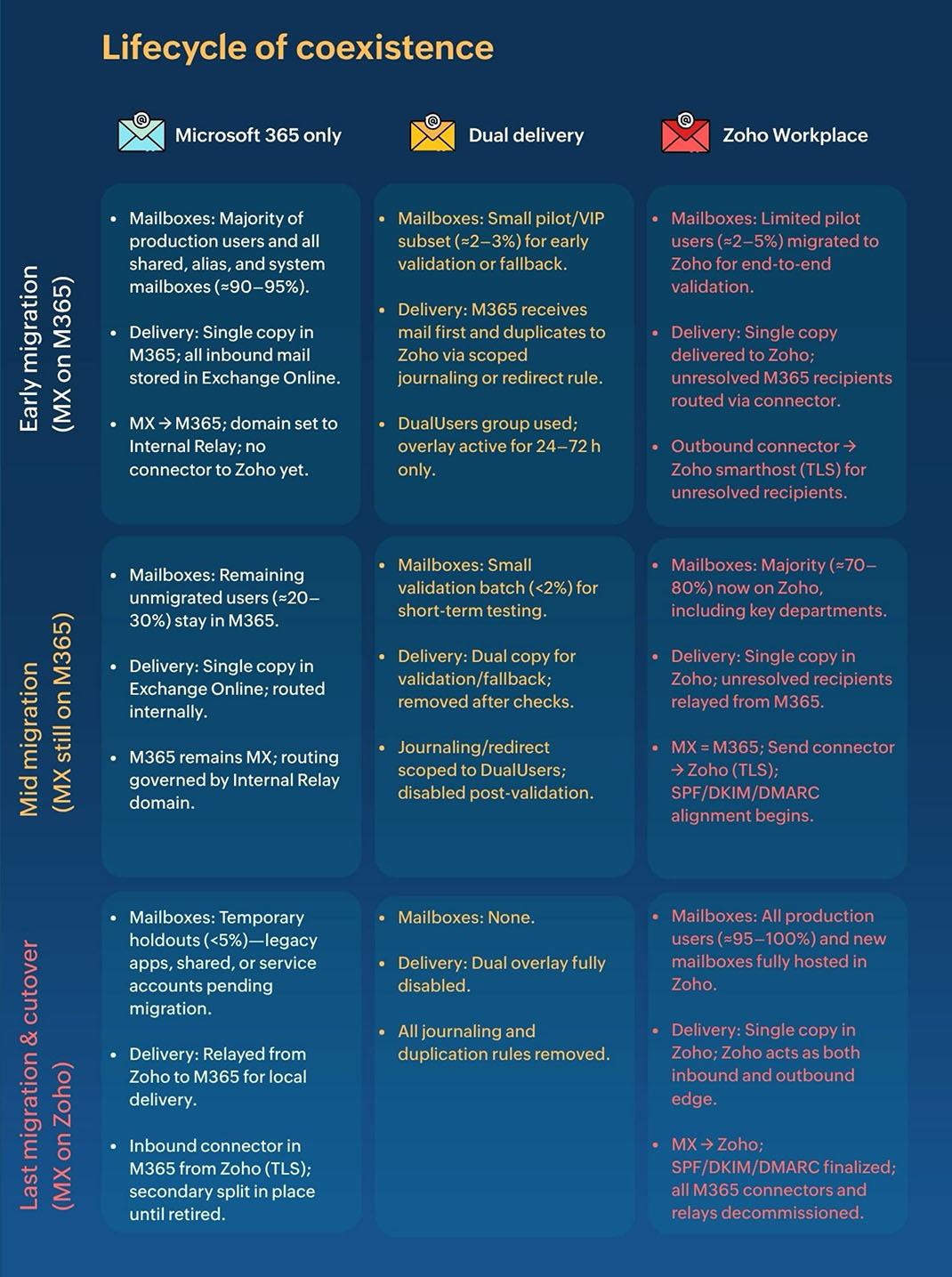
Hybrid mail coexistence: Split/dual delivery (M365 → Zoho Workplace)
During early/mid migration, Microsoft 365 (Exchange) remains the inbound edge (MX → M365). Admins use Split delivery to send a single copy of mail to Zoho for migrated users, and, where needed, turn on a short Dual delivery overlay to keep a duplicate in M365 for validation/fallback. Outbound sending is configured separately and does not determine Split vs. Dual.
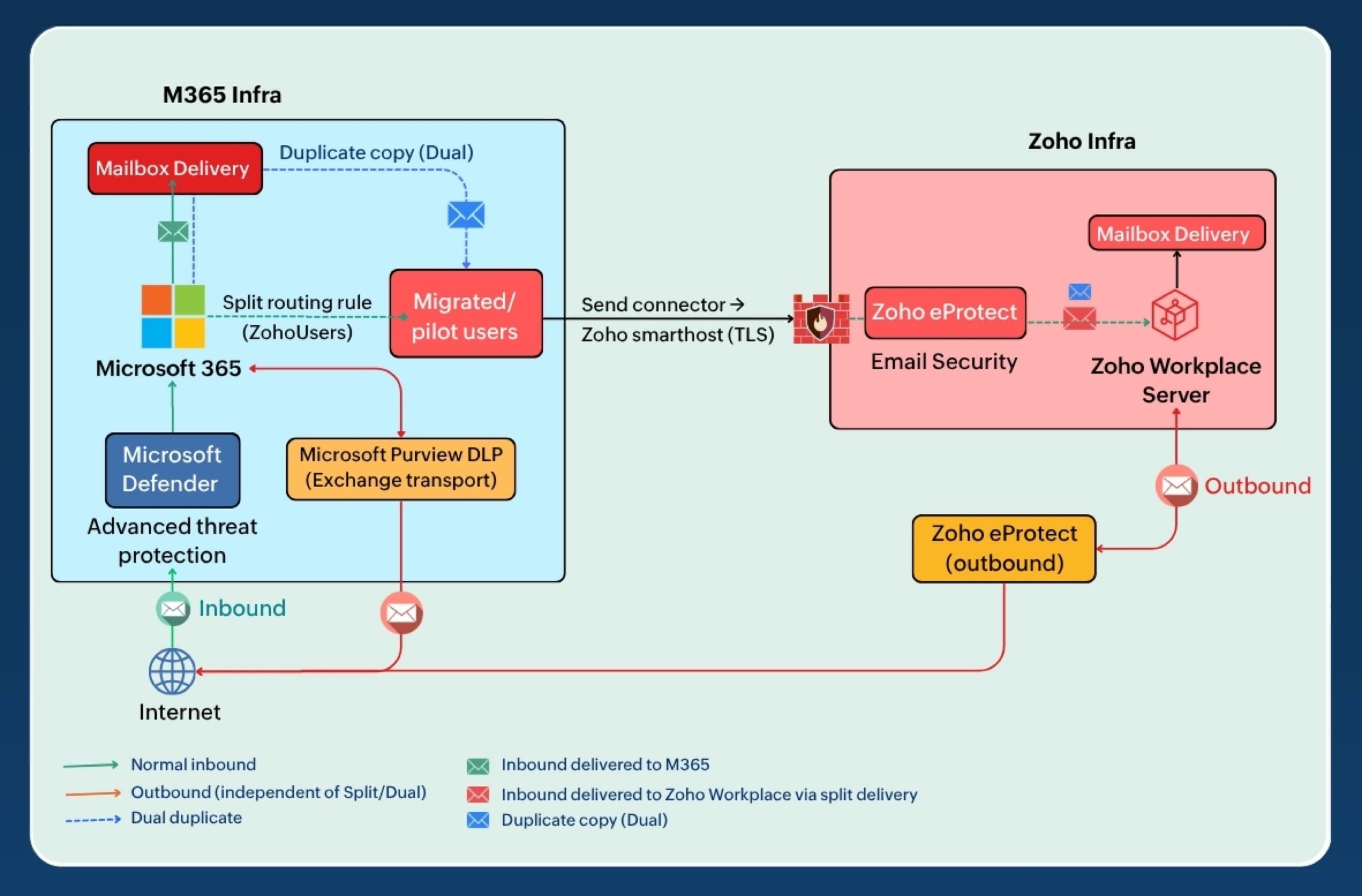
Admin checklist
Split delivery (MX = M365) | Dual delivery (temporary overlay) |
|
|
Admin checklist
| Admin checklist
|
Configuration
State | Where | Configuration |
| Split delivery (MX = M365) | Exchange Online | 1. Set domain Internal Relay. 2. Create group ZohoUsers. 3. Create Send connector → Zoho smarthost (TLS) (not MX). 4. Mail-flow rule: If recipient in ZohoUsers → use Zoho connector. 5. Add loop-guard header and exclude stamped mail. |
| Dual delivery overlay (time-boxed) | Exchange Online | 1. Create group DualUsers. 2. Add org-level duplication/journaling rule for DualUsers (no per-mailbox forwarding). 3. Keep Split routing in place. 4. If the domain is Authoritative, create mail contacts for Zoho-homed users to avoid 550. 5. End in 24h–72 h; users remain Split. |
| Last phase Split (MX = Zoho) | Zoho and Exchange Online | 1. In Zoho: enable Secondary (split) delivery → EXO smarthost. 2. In EXO: create Inbound connector from Zoho. 3. Deliver locally in Zoho; split-route only holdouts back to M365. 4. Remove the back-route when finished. |
Last phase: Zoho-only edge with split to M365 holdouts
Zoho is now the single inbound edge (MX → Zoho). Mail delivers in Zoho; only defined holdout recipients are secondary-delivered to Exchange Online via an inbound connector (TLS).
Outbound remains per-platform (Zoho users via Zoho; holdouts via M365). When the last holdouts move, remove the split route, retire EXO connectors, and you will be Zoho-only.
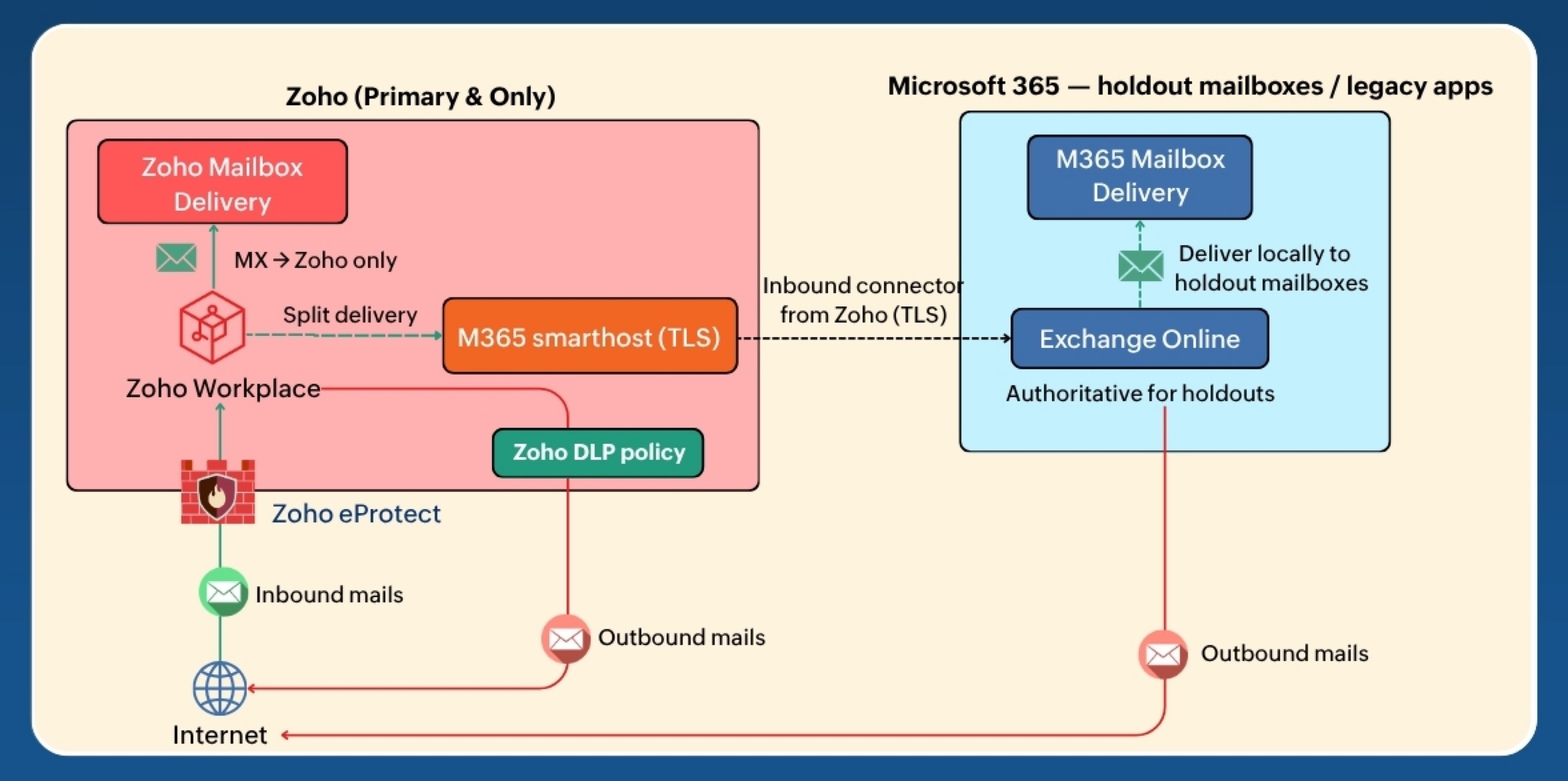
This article is co-authored by Sandeep Kotla and Vignesh S.
Sandeep is an accomplished inbound marketer at Zoho Corporation, specializing in digital workplace strategies, digital transformation initiatives, and enhancing employee experiences. Previously, he handled analyst relations and corporate marketing for Manage Engine (a division of Zoho Corp) and its suite of IT management products. He currently spends most of his time re-imagining and writing about how work gets done in large organizations, reading numerous newsletters, and Marie Kondo-ing his inbox.
Vignesh works as a Marketing Analyst at Zoho Corporation, specializing in content initiatives and digital workplace strategies. He's a passionate creator with a penchant for marketing and growth. In his free time, you can see him shuffling between books, movies, music, sports, and traveling, not necessarily in the same order.
